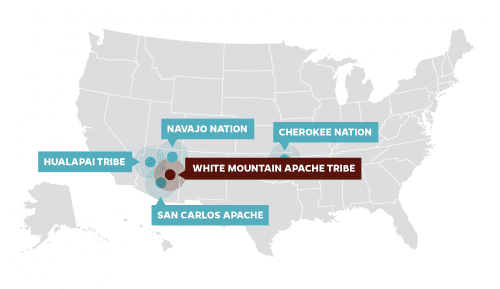About
Project information
The mission of the Southwest Hub for American Indian Youth Suicide Prevention Research (Southwest Hub) is to establish a collaborative network of tribal leaders, investigators, interventionists, service providers, and service users in the Southwest region, facilitated by Johns Hopkins Center for Indigenous Health, to pool intellectual resources, cultural assets, and experience to overcome the suicide disparity among Native American youth.
Its primary goals are to:
- Develop and test preventive strategies that can sustainably reduce the burden of youth suicide and promote resilience in Native communities;
- Conduct outreach and dissemination to promote additional tribal community engagement in research activities;
- Enable tribal leaders, providers, and policymakers to use science-based information to formulate mental health policies and programs to reduce suicide; and
- A central focus of the Southwest Hub will be to grow and evaluate tribal-specific surveillance, linked case management, and brief interventions to reduce risks and promote resilience.
Our broad strategy for addressing Native American youth suicide prevention involves:
- Early identification of at-risk youth through tribally mandated surveillance;
- Case management and monitoring by caring community-based mental health workers to assess imminent risk and promote linkages to care; and
- Two brief interventions that first address imminent risk and promote linkages to mental health care, and second, teach youth culturally embedded protective factors to promote resilience.
Southwest Hub partners include the White Mountain Apache Tribe, San Carlos Apache Tribe, Hualapai Tribe, Navajo Nation, and Cherokee Nation.
For more information, please contact Mary Cwik by email: mcwik1@jhu.edu.

